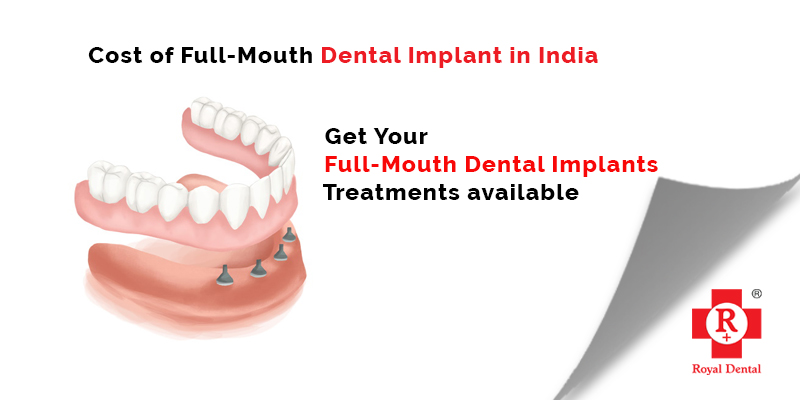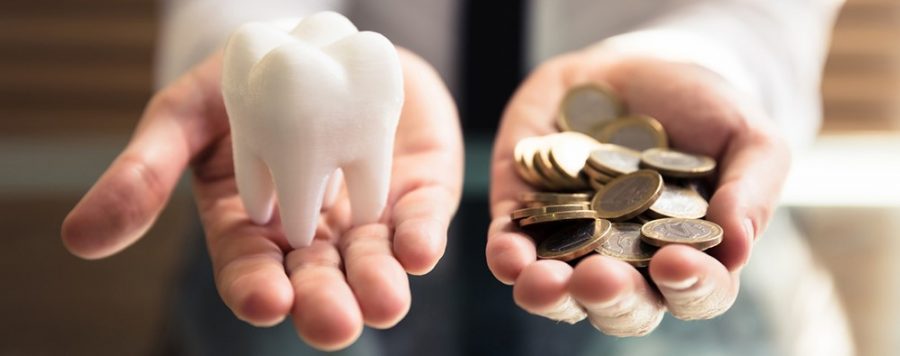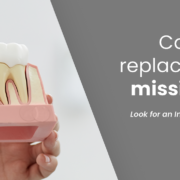Full mouth teeth replacement is a procedure that replaces the natural teeth in mouth with artificial ones. Because it replaces all of your natural teeth, dentures are a good option for people who no longer have any natural teeth remaining. A full-mouth denture can also be called a complete denture or complete artificial teeth. They are removable appliances made to replace all missing natural teeth. There are several different types of full-mouth dentures, each with its own pros and cons. Your dentist will help you choose the best option based on your specific needs, current dental health, and financial situation.
What is included in full mouth teeth replacement?
A full-mouth dental restoration will replace all of your natural teeth, possibly requiring a bone graft or implant placement to ensure stability. You will likely be given a retainer to wear at night to prevent the teeth from shifting. You will also likely be fitted with a bite guard similar to a sports mouth guard to protect your soft tissues and prevent damage to your new teeth.
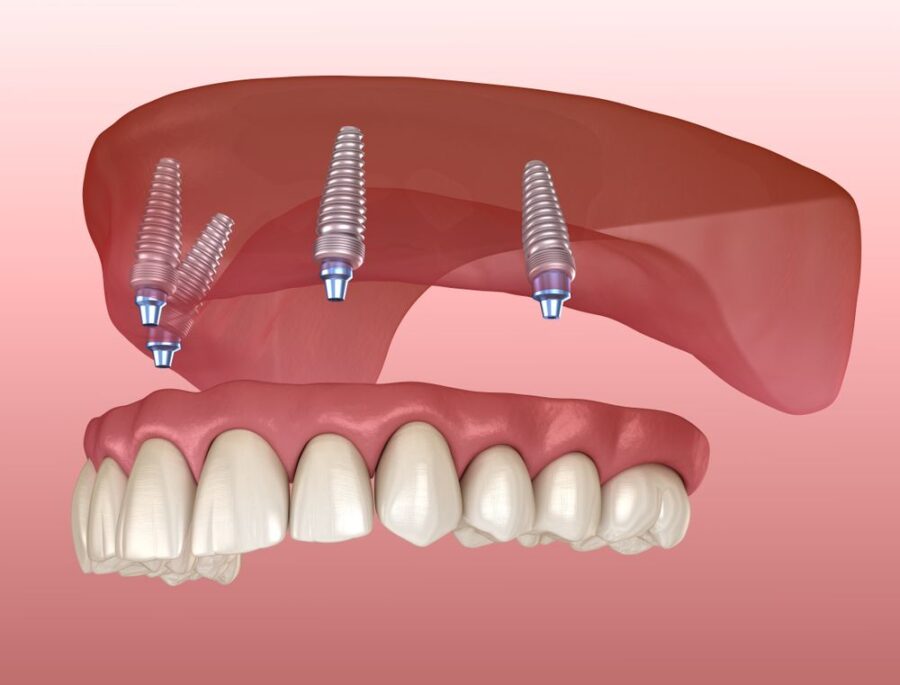
If you are missing your palate or have issues chewing, your dentist may recommend a soft palate or an oral-aid device like a tongue depressor, sponge, or rubber retainer. Your dentist may also suggest you take an anti-bacterial and/or anti-inflammatory medication to reduce swelling during the healing process.
Full-mouth denture options
There are several different types of full-mouth dentures. The two most common types are the conventional full denture and the implant-retained full denture. Conventional full dentures are typically made from a combination of acrylic and natural resin.
These are sometimes referred to as “immediate” or “implant-less” dentures. This denture will be held in place by a surgical braided cord that goes around your head and gums to create a tight seal. Implant-retained full dentures are attached to dental implants that are placed directly into your jawbone. This type of denture can be used even if you’re missing your gums.
Why choose full mouth teeth replacement?
Ultimately, the decision to replace all of your teeth is up to you. Some people may find that partial replacement with a denture or crown is enough to address their dental health concerns. However, full-mouth teeth replacement offers a number of advantages that make it a good choice for many people. These include:
Improved chewing and digestion – Natural teeth can cause digestive issues. This is particularly true for people with dentures. A full mouth denture may help improve digestion. Full mouth replacement can also prevent issues like acid reflux and constipation.
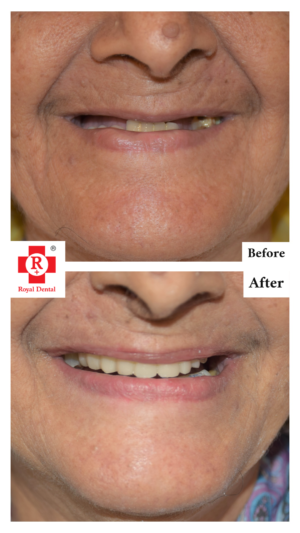
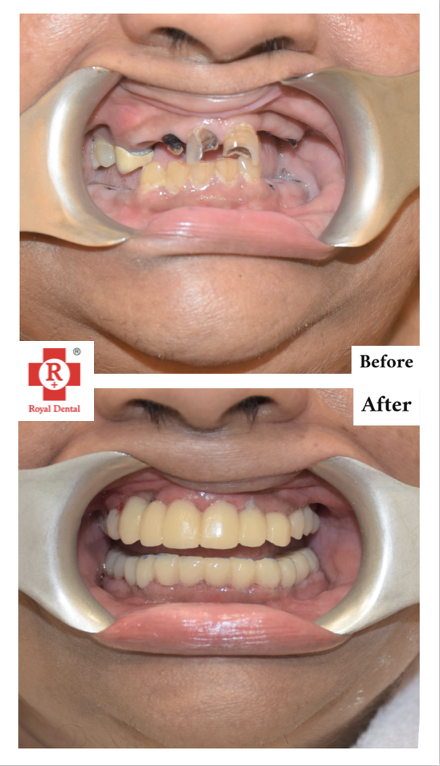
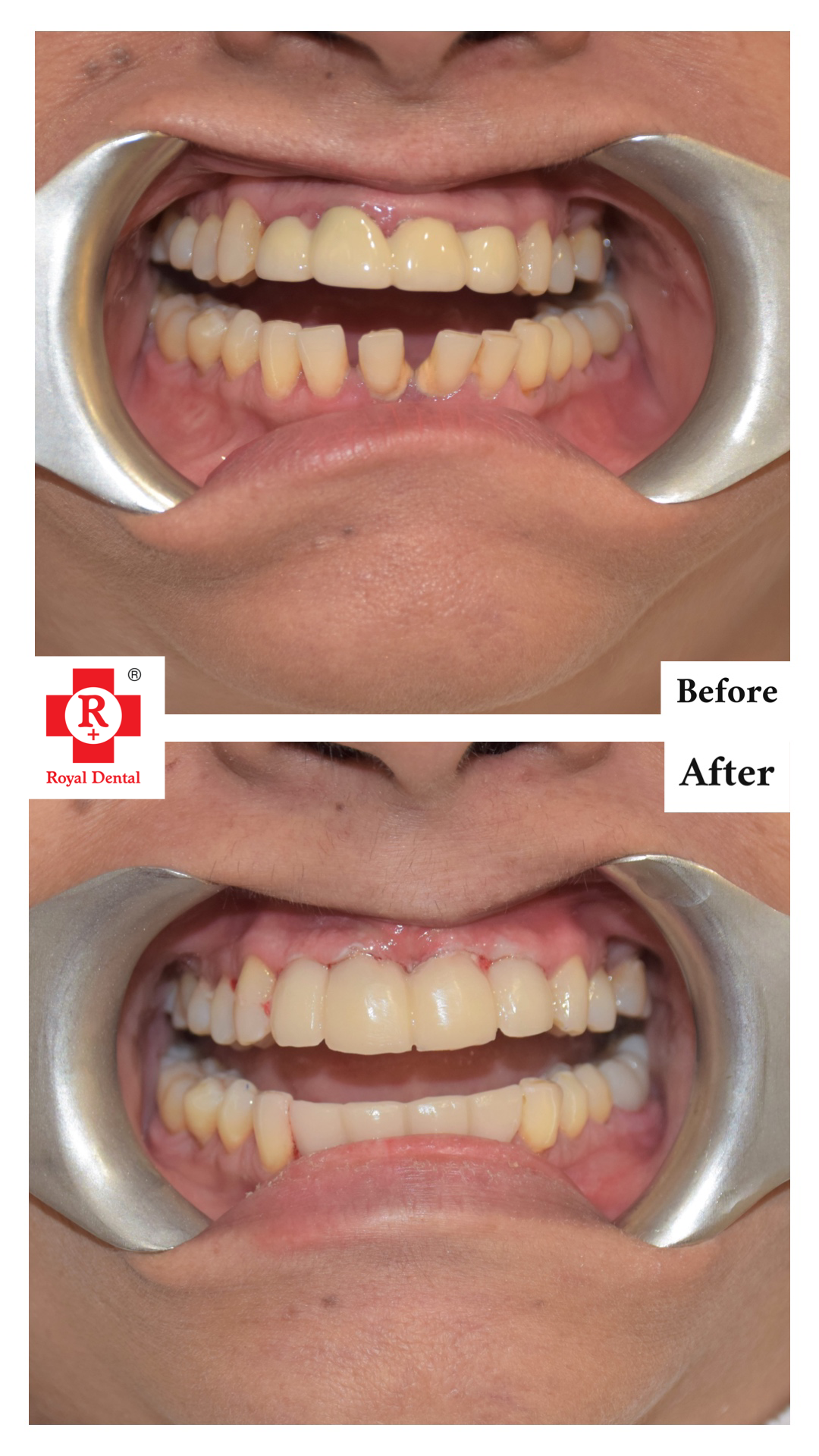
Improved speech – A full mouth denture can make it easier to pronounce certain sounds, like “s” and “t” sounds. It can also help address issues related to tongue size. Full mouth teeth replacement can also improve the way others perceive you. It can reduce signs of aging and make you look younger.
Improved self-confidence – Full mouth teeth replacement may help increase your self-esteem and self-confidence.
Improved dental health – A full-mouth denture can be especially helpful for people who no longer have any natural teeth in their mouth.
How is a full-mouth denture made?
A full mouth denture will be made using an impression of your dentition and soft tissues, along with a cast of your upper and lower jaws. A dental laboratory will use these materials to create your customized denture. Your dentist will start by removing any remaining natural teeth and surrounding soft tissues.

Once the area is cleaned and prepared, a rubber dam will be placed to protect your tongue and other soft tissues from the remaining dental work. Next, your dentist will make an impression on the remaining oral tissues. The impression will be sent to the laboratory along with the cast of the jaws so that the denture can be made to fit your specific anatomy.
Tips for coping with a full-mouth denture
- Practice good oral hygiene – You need to brush your denture daily and clean it nightly with an anti-bacterial mouthwash. You can also soak it in an anti-bacterial solution, like peroxide or baking soda.
- Eat a healthy, balanced diet – You may have to eat differently than you did before your teeth were removed. You can also get special chewing tools, like a spoon fork or plastic spoons with raised edges.
- Visit your dentist regularly – Schedule checkups every six months to keep your new teeth healthy and address any issues as soon as possible.
Conclusion
Full mouth teeth replacement can be a good option for people who no longer have any natural teeth in their mouth. It offers a number of advantages over partial replacement, including improved chewing and digestion, improved speech, and improved self-confidence. However, full-mouth dentures can be challenging to adjust to at first, and you may need some time to get used to them. If you have been considering full mouth teeth replacement, consult with your dentist to learn more about your options.

